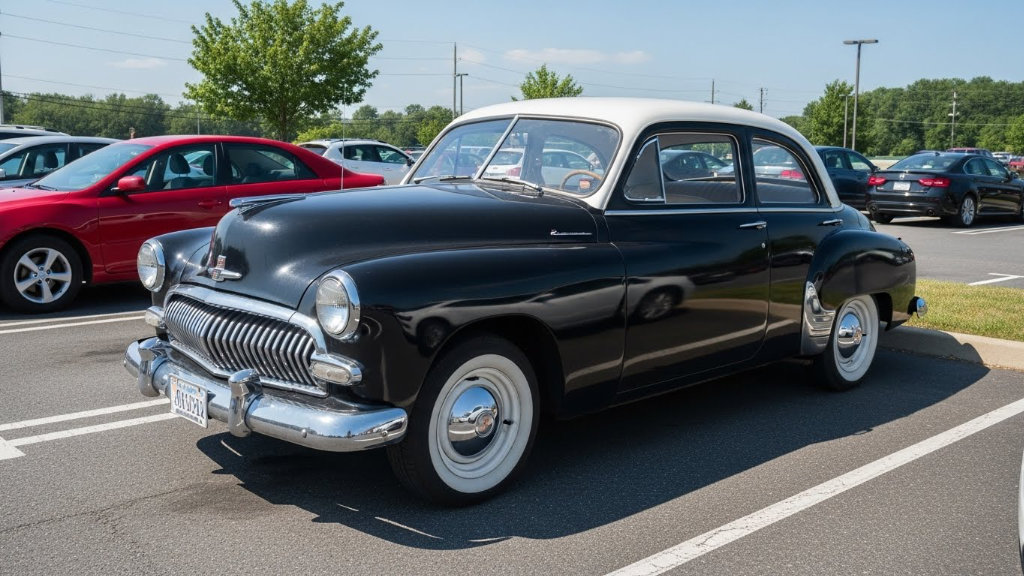Minimum Driving Age
In Connecticut, individuals can obtain a learner’s permit at 16 years old. To acquire this permit, applicants must:
- Pass a written knowledge test based on the Connecticut driver’s manual
- Pass a vision test
- Provide acceptable forms of identification
Once the permit is held for the required duration and additional requirements are met, individuals can apply for a driver’s license.
Source – Connecticut DMV: Get a Learner’s Permit
Learner’s Permit Rules
For drivers aged 16 or 17 with a learner’s permit:
- Must be accompanied by a qualified trainer (parent, legal guardian, or licensed driving instructor) seated in the front passenger seat
- May not have any passengers other than the qualified trainer
- All passengers must wear seatbelts
- Prohibited from using any mobile devices, including hands-free accessories
Source – Connecticut DMV: Teen Driver Restrictions
License Types
Connecticut offers the following license types:
- Non-Commercial Driver’s License (Class D): Standard license for passenger vehicles
- Commercial Driver’s License (CDL): For operating large trucks and buses, with classifications A, B, and C
- Motorcycle Endorsement (Class M): For operating motorcycles
Source – Connecticut DMV: Types of Licenses
Required Documents for Driving
To apply for a driver’s license or REAL ID in Connecticut, you must provide:
- Proof of identity (e.g., birth certificate or passport)
- Social Security card
- Two documents verifying Connecticut residency
- Proof of legal presence in the United States
Source – Connecticut DMV: REAL ID Document Checklist
Seatbelt and Car Seat Laws
- Seatbelts are mandatory for all drivers and front-seat passengers
- Rear-seat passengers aged 4-16 must also wear seatbelts
- Children under 2 years or under 30 pounds must be in a rear-facing car seat
- Children aged 2-4 years or 30-40 pounds must be in a forward-facing car seat
- Children aged 5-7 years or 40-60 pounds must be in a booster seat
Sources – Connecticut Child Passenger Safety Laws, Safe Kids Worldwide: Connecticut
Cell Phone and Distracted Driving Rules
- All drivers are prohibited from using handheld cell phones or mobile electronic devices while driving
- Drivers aged 18 and over may use hands-free accessories
- Drivers under 18 are prohibited from using any mobile devices, including hands-free accessories
- Exceptions are made for emergency situations and certain official duties
Source – Connecticut Highway Safety Office: Distracted Driving
DUI/DWI Thresholds and Penalties
It is illegal to drive with a Blood Alcohol Content (BAC) of:
- 0.08% or more for drivers 21 and older
- 0.02% or more for drivers under 21
Penalties for a first DUI offense may include:
- Mandatory 45-day driver’s license suspension
- Installation of an ignition interlock device
- Fines and possible jail time
Source – Connecticut DMV: Driving Under the Influence
Speed Limits
Connecticut default speed limits:
- 65 mph on rural freeways
- 55 mph on rural divided highways
- 50 mph on rural undivided highways
- 25-30 mph in residential and business districts
- 45-55 mph on urban freeways
Always follow posted signage, as some zones have specific limits.
Source – Wikipedia: Speed Limits in Connecticut
Road Rage and Reckless Driving Laws
Reckless driving is defined as operating a vehicle with willful disregard for safety. Penalties include:
- Fines ranging from $100 to $300 for a first offense
- Up to 30 days in jail
- License suspension
Subsequent offenses may result in higher fines and longer jail time.
Source – Connecticut General Statutes § 14-222
Points System
Connecticut uses a point system for tracking violations:
- Points range from 1 to 5, depending on the severity of the offense
- Accumulating 10 points or more may lead to license suspension
- Points remain on the driving record for 24 months from the date of assessment
Source – Law Offices of Mark Sherman: Connecticut DMV Points
Insurance Requirements
Connecticut’s minimum liability insurance coverage is:
- $25,000 for bodily injury per person
- $50,000 for bodily injury per accident
- $25,000 for property damage per accident
Drivers must carry proof of insurance at all times.
Source – Connecticut Insurance Department: Auto Insurance
Renewal Frequency and Testing
- Driver’s licenses must be renewed every 6 years
- Vision screening is required every 8 years (i.e., every second renewal)
- Licenses can be renewed online, in person, or by mail, depending on eligibility
Sources – Connecticut DMV: Renew Driver License, Connecticut General Assembly: Vision Screening for Driver’s License Renewals
Want to register your ride without the DMV drama?
Let Ride Legal handle the hard part — so you can focus on what moves you.



